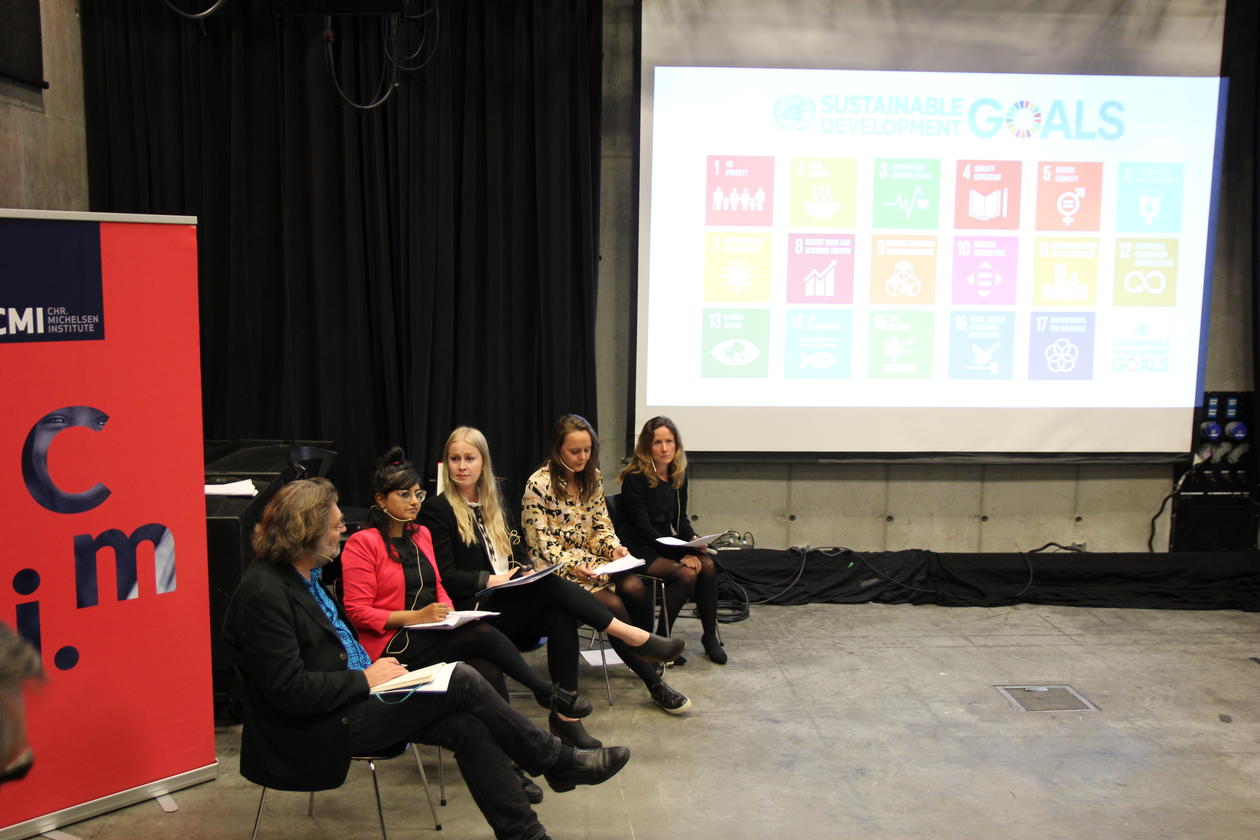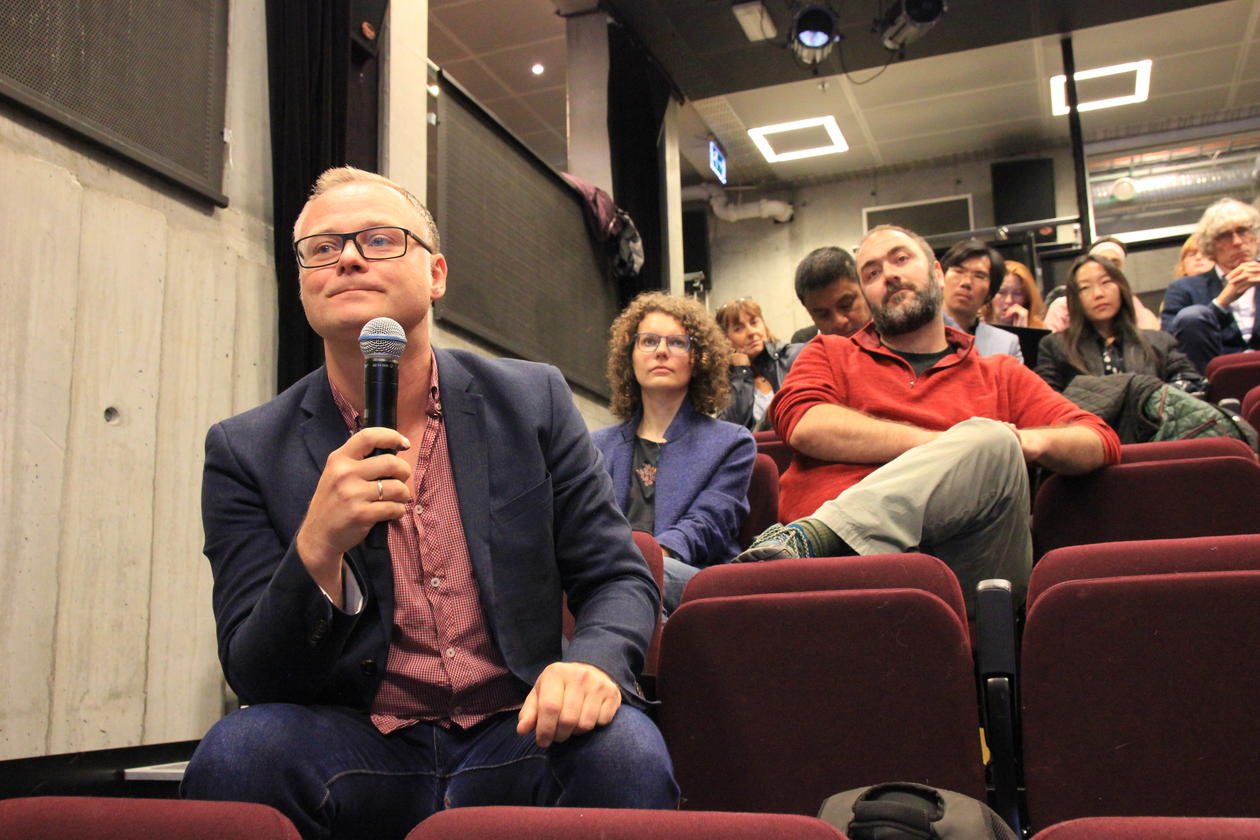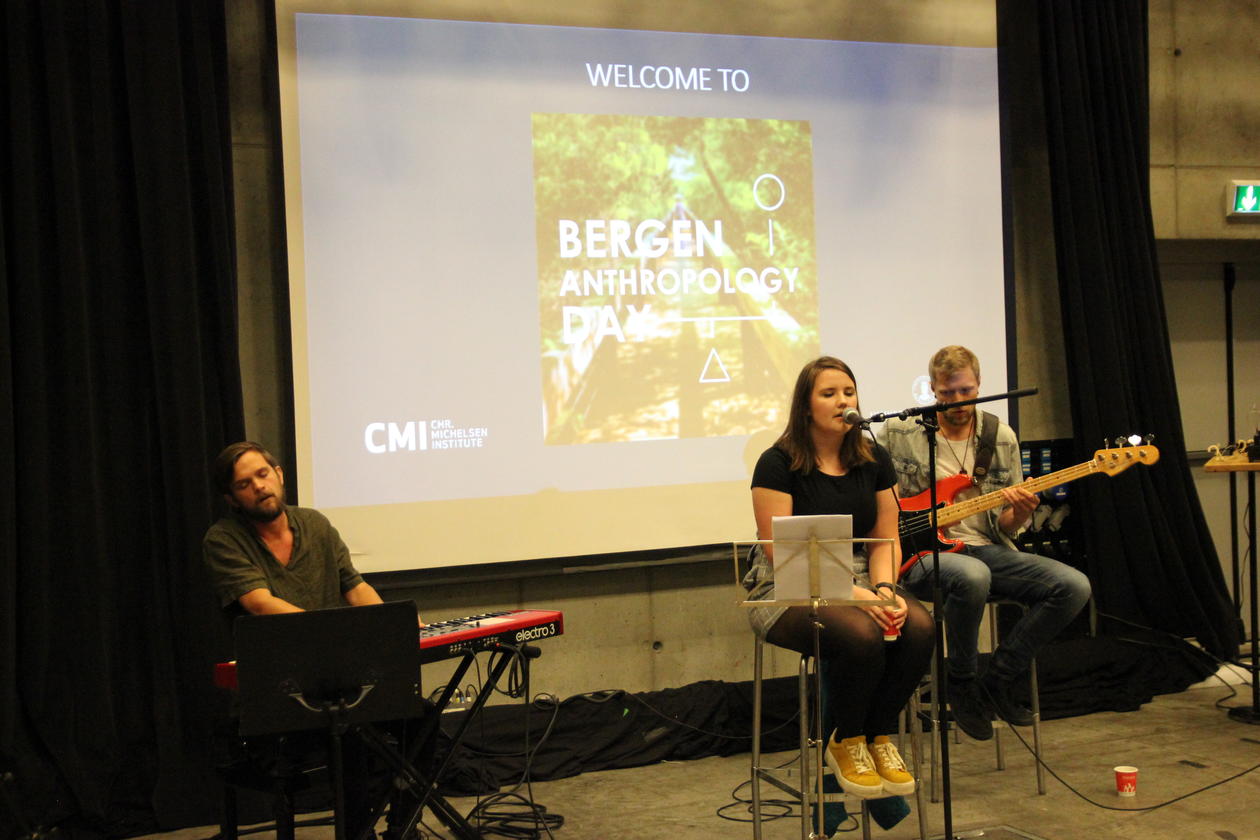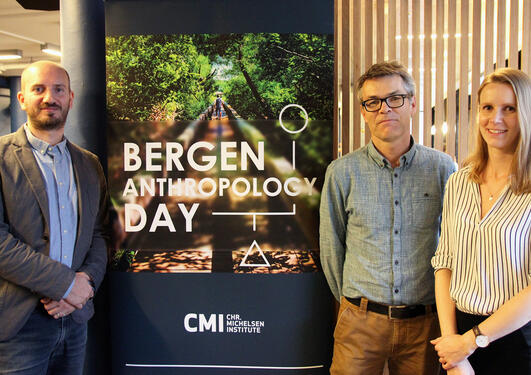Anthropologists about the Sustainable Development Goals
The UN Sustainable Development Goals was a central theme for this year's Bergen Anthropology Day. New students and alumni, academics and researchers gathered for an enlightening afternoon at Kvarteret.
Main content
This year's event revolved around the theme of UN's Sustainable Development Goals (SDGs). The programme included an interesting panel on the SDGs and research projects that engage the SDGs in different ways. We were happy to see many attendees, in particular new students and alumni in addition to academics and researchers. We also enjoyed some soothing musical contributions by a trio of previous masterstudents midway through the programme.
Panel about the SDGs
How will SGDs inform future project ideas? How could the existence of SDGs be reflected in teaching? And how can anthropology inform the debate on the SDGs? These were central questions in the panel that was moderated by Edvard Hviding (UiB), whom in the occasion of the panel presented himself as Director of SDG Bergen Science Advice.
This year's panel did not only invite anthropologists to discuss the SDGs, but also political scientists Anwesha Dutta and Salla Turunen who both represented Chr. Michelsen Institute. "In terms of teaching, it is important that we point to the inherent contradictions within these goals", claimed post.doc Dutta. All panelists agreed.
PhD-candidate Salla Turunen argued that researchers can contribute with more comprehensive approaches in terms of (further) developing the multiple indicators within each of the SDG's targets. PhD-candidate Marianna Betti (UiB) moved the discussion to another level in her talk about the relation between religion and SDG 5 ('gender equality').
In anthropological spirit, Nora Haukali (UiB) turned the focus to the term 'sustainable development'. "Whose definition of the term does one apply; is it an emic or ethic concept?", asked Haukali. Further, she contended that because the SDGs are complex and always context-dependent, we must be clear about what we put into the term 'sustainable development' and on what level we discuss the term, in order to avoid vagueness and confusion in teaching.
SDGs in practice
Two international research projects that are both based at the Department of Social Anthropology, UiB were also on the programme. Both projects delve into concerns that are closely related to several SDGs.
Professor and project leader for Urban Enclaving Futures, Bjørn Enge Bertelsen, brought the audience to urban Africa where the rapid emergence of enclaves is creating a new form of urban order. With comparative subprojects in Accra, Johannesburg and Mapto, the project seeks to contribute in finding solutions to two main challenges in African urban development: housing and inequality. In doing so, Urban Enclaving Futures engages with SDG 8 ('decent work and economic growth') and in particular SDG 11 ('sustainable cities and communities')
Departing from land, Professor and project leader Edvard Hviding brought the audience to sea with his interdisciplinary project Mare Nullius? in the Pacific Ocean. With challenges of rising sea levels, erosion of land the project asks: How do Pacific islanders and their states react and prepare for what could be the demise of their sovereign land and sea territories? As such, Mare Nullius delves into concerns related to SDG 13 ('climate action') and in particular SDG 14 ('life below water').
Transoceanic fishers and humanitarian diplomacy
Still at sea, Edyta Roszko (CMI) presented her research project TransOcean about mobile fishers in and out of the South China Sea. "We need to understand the connections between maritime enclosures and fisher mobilities", she contended.
SDG 16 ('peace, justice and strong institutions') became relevant through Antonio De Lauri's presentation of the research project "Humanitarian Diplomacy", in which panelist Turunen also is a researcher. He asked, "what does it mean to to act in the interest of vulnerable people in practice?". One of the project's key objectives is to understand if, how, and to what extent humanitarian diplomacy is an effective instrument to meet the challenge of 'leaving no one behind', as stipulated in the SDGs.
We are already looking forward to next years Bergen Anthropology Day!







